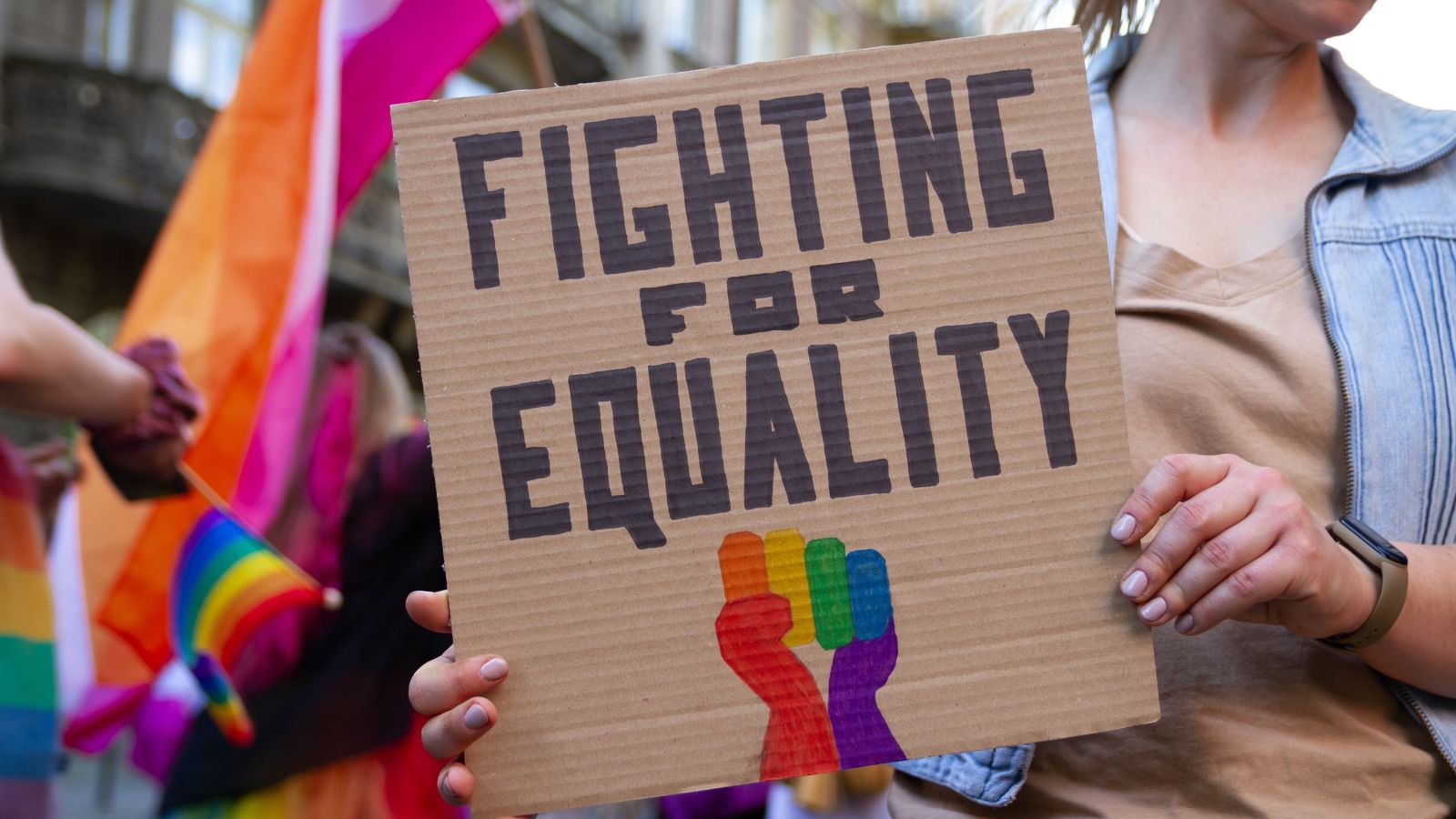It’s very important in life to be inclusive, making sure that everyone is treated fairly and equally–at least in the eyes of Gen Z. Sadly, though, a lot of boomers don’t realize this. So, here are 16 simple things that boomers need to learn about inclusivity.
Understanding Pronouns

These days, there is a lot of focus on respecting individuals’ pronouns. This practice can seem unfamiliar to boomers, but as the UC Davis LGBTQIA Resource Center points out, using correct pronouns shows respect and acknowledgment of a person’s identity. Misgendering, whether intentional or not, can harm and alienate, so attentiveness to pronouns is crucial for fostering respect. It’s really not difficult, either.
Embracing Different Lifestyles

Not everyone lives the same kind of lifestyle, so accepting these differences without judgment is essential. Some people may choose paths that differ significantly from traditional norms, and showing openness to these choices promotes a more inclusive and understanding society. It’s not your life, so why does it matter?
Listening Actively

The act of active listening involves truly hearing what others are saying, not just waiting for your turn to speak. This means paying attention, asking questions, and responding thoughtfully–not just waiting for your turn to talk. Doing so ensures that everyone is involved in a conversation, which is an essential part of being inclusive.
Challenging Stereotypes

Sadly, stereotypes still exist in today’s society, and they can be deeply ingrained and harmful. It’s important to recognize and challenge these assumptions, whether they pertain to age, race, gender, religion, or any other characteristic. By questioning and confronting stereotypes, we open the door to more genuine and respectful interactions. After all, we’re all human.
Valuing Multigenerational Input

Different generations bring unique perspectives and experiences, and valuing input from all age groups enriches discussions and decision-making processes. Boomers, in particular, can learn from younger generations, just as they have valuable insights to share from their own experiences.
Supporting Accessibility

Another thing boomers need to learn about inclusivity is that creating environments that are accessible to everyone, regardless of physical or mental abilities, is key. This includes physical spaces, as well as digital and communication tools. Ensuring accessibility demonstrates a commitment to equality and respect for all individuals–surely you wouldn’t want it any other way?
Learning About Cultural Differences

It’s difficult to be inclusive without learning about cultural differences. Understanding and respecting these differences can prevent misunderstandings and make for better relationships. Taking the time to learn about other cultures shows respect and openness to diverse perspectives and practices. There’s nothing wrong with asking questions, either.
Recognizing Privilege

These days, Gen Z focuses a lot on privilege, especially white privilege and boomer privilege. Acknowledging one’s own privileges, whether based on race, gender, socioeconomic status, or other factors, is important for understanding the experiences of others. There’s nothing wrong with having privilege, but it’s important to at least recognize it.
Encouraging Open Dialogue

It’s always a good idea to create environments where open dialogue is encouraged, helping everyone feel valued. Everyone wants a space where they can express their thoughts and feelings without fear of judgment; otherwise, they’ll never feel welcomed or valued.
Advocating for Equality

Gen Z supports policies and practices that promote equality, something that boomers really need to get on board with. It involves advocating for fair treatment in the workplace, supporting inclusive education, and promoting equal opportunities in various spheres. Advocacy for equality helps create a more just society, which surely we can all agree is positive.
Respecting Boundaries

To be inclusive, it’s important to understand and respect personal boundaries. Everyone has different comfort levels and respecting these limits gives people a sense of safety and respect. Asking for consent and being mindful of others’ personal space and boundaries are key components of this.
Celebrating Diversity

Diversity enriches our communities and experiences in so many ways, so we should celebrate our differences rather than merely tolerate them. This can involve recognizing and honoring different cultural traditions, lifestyles, and perspectives in meaningful ways.
Being Open to Learning

Learning should never stop in school; we need to continue to have a willingness to learn and grow, regardless of our age. This might involve seeking out educational resources, attending workshops, or simply listening to the experiences of others. Sadly, this is something that many boomers overlook.
Practicing Empathy

Empathy involves understanding and sharing the feelings of others, which helps build stronger, more inclusive relationships. By putting ourselves in others’ shoes, we can better appreciate their experiences and challenges, leading to more compassionate and inclusive actions.
Encouraging Diverse Voices

We need to ensure that diverse voices are heard and valued in life because otherwise, we only hear one side of the story. This means actively seeking out and listening to the perspectives of those who might otherwise be marginalized. Encouraging diverse voices enriches discussions and leads to more comprehensive understanding and solutions, so remember that if you’re a boomer.
Supporting Inclusive Leadership

Inclusive leadership involves making decisions that consider the needs and perspectives of all individuals. Leaders who prioritize inclusivity help create environments where everyone feels valued and respected. After all, you can’t truly be a leader if you’re picking and choosing who you are addressing with respect.

